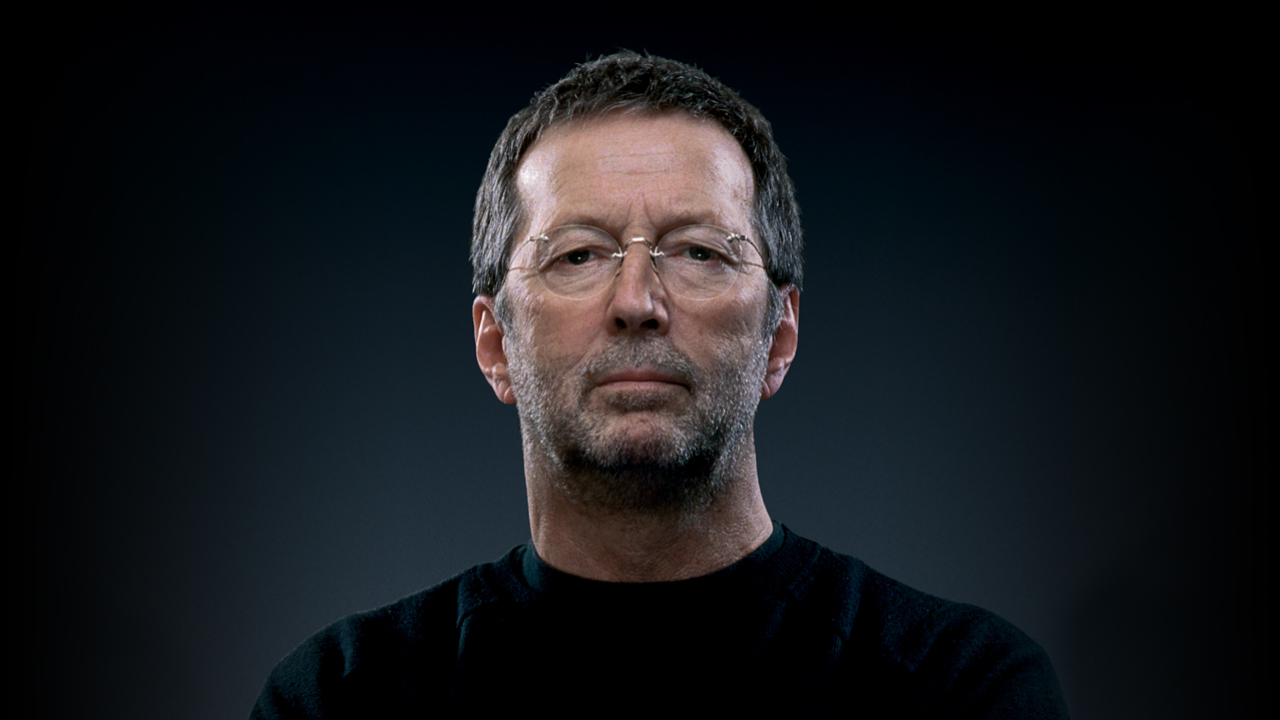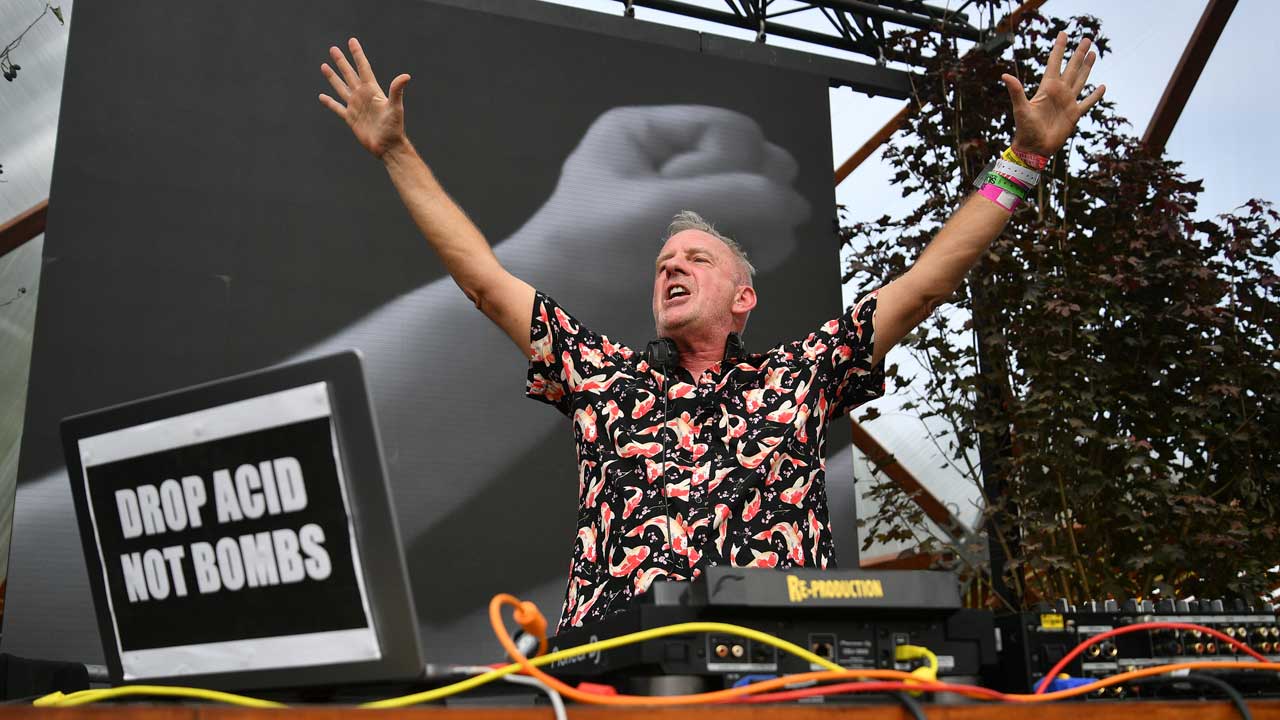You can trust Louder
Ask the average person in the street to name a guitarist and the chances are the first one they’ll come up with will be Eric Clapton. From being a Yardbird in the 60s to a household name in the 21st century, his stature as a guitarist is arguably matched only by that of Jimi Hendrix and Jeff Beck. All three have shaped the sound of the instrument and defined its style within the rock genre.
For Clapton it’s been a long journey but not always an easy ride. The blues purist from the Yardbirds and John Mayall days became a psychedelic jazz adventurer with Cream, a riff-master with Blind Faith, a country soul man with Delaney & Bonnie, a honey-toned rock’n’roller in Derek And The Dominos, a gifted collaborator with The Beatles, and a highly successful solo artist easily capable of selling out a month at a time at the Royal Albert Hall. Yet no matter how much his music twists and turns, the blues remains its foundation; it sings in the soul of the man./o:p
The three-CD compilation set Forever Man is comprised of studio material, live tracks and, of course, the blues, one disc for each category. It’s not a career overview; there are no Yardbirds, John Mayall or Cream tracks (sadly), and the studio disc includes a few songs from the 80s, along with that era’s somewhat dated production values.
The album opens with Gotta Get Over, an up-tempo, gritty boogie from Old Sock (2013) which kicks things off to a great start with layers of guitars, a hot Hammond and a rolling groove that’s reminiscent of Delaney & Bonnie with its gospel-like backing vocals./o:p
Included here too is the beautiful Tears In Heaven (1992), written after the tragic death of Eric’s four-year-old son Conor. With its acoustic guitar foundation, weeping pedal-steel accompaniment and Eric’s touching vocal, it lives up to its title, avoiding becoming maudlin by its obvious, tender sincerity.
The cover of JJ Cale’s They Call Me The Breeze (1989) begins with a drum-machine pattern (eerily similar to my own Do You Dream In Colour?) before settling into a down-home shuffle with lyrics extolling the timeless virtues of restlessness and ‘moving on’.
Believe In Life (2001) ploughs a surprisingly easy-listening pop furrow, with laid-back guitar and a vocal that sounds uncannily like Cliff Richard. In fact this had me searching the sleeve notes to see if Sir Cliff was indeed on the track, but there’s no indication that this was the case. Very weird, and a long, long way from Eric’s fiery Bluesbreakers days. A warm and pleasant song, it’s true, but I bet he never imagined recording something like this all those years ago.
Sign up below to get the latest from Classic Rock, plus exclusive special offers, direct to your inbox!
A much more ‘Eric-like’ vocal comes on My Father’s Eyes (1998), with an understated reggae feel, omitting the obvious off-beat chording in favour of a discreet tremolo rhythm guitar. There’s some nice slide guitars on this too.
Travellin’ Alone (2010) has a much grittier blues feel, with a tough, dirty guitar sound and generally much more raw production values with heavily compressed drums.
Change The World (1996) reminds me of Prince in places and exudes a good vibe, but Top 20 hit Behind The Mask (1986) suffers from those 80s production values mentioned previously. Unfortunately this track could be almost anyone from that era; only the guitar marks it out as an Eric Clapton track, and even then it’s rather nondescript. Treading water, perhaps?/o:p
Riding With The King comes from Clapton’s 2000 album of the same name, a collaboration with the great BB King, who sadly passed away recently. A tough groove, great vocals, and of course BB’s guitar doing its thing alongside Eric’s.
The live disc is something else. Without the slick production of some of the studio tracks the songs really come alive. Opener Badge, one of my all time favourite Cream songs, burns bright. Here there’s a long pause before the 12-string guitar break that graced the original comes in, then the solo soars on extended wings, the guitar tone stronger and more vibrant than much of the studio record. Taken from a concert in 1991, this terrific version provides a fine framework for Clapton’s playing.
Likewise Cream’s Sunshine Of Your Love is given a muscular treatment, complete with the brief quote from Blue Moon that kicked off the original guitar solo, and Eric shows all his old fire on the extended, improvised coda to the song. Thrilling and vibrant, this one really lifts off. White Room similarly has great energy, a classic Cream song that holds up well today.
A real treat comes with Nobody Knows You When You’re Down And Out, featuring a fine vocal from Eric and a relaxed but focused acoustic guitar solo, and Steve Windwood joins for the Blind Faith classic Presence Of The Lord. His distinctive vocal soar ecstatic over the guitars, and some nice wah-wah guitar sets up the changes for the up-tempo middle section.
The real surprise here, though, is an unexpected version of Somewhere Over The Rainbow – yes, the Judy Garland classic. Given a simple, old-fashioned treatment, it’s not quite as delightful as the rendition of Hoagy Carmichael’s Old Rockin’ Chair that I saw Eric perform at a Harewood House concert a few years back, but it’s charming and whimsical enough and brings the live disc to a fitting close.
The blues disc uniquely focuses on the music that is perhaps closest to Eric’s heart. With a couple of contributions from BB King and one from JJ Cale, there are 19 familiar and not so familiar songs, performed in both acoustic and electric mode.
It opens with a rocking version of Before You Accuse Me (1989), featuring an impassioned vocal performance and energetic guitar playing. Hold On I’m Coming is the first of two tracks recorded with BB King, and takes the old Sam & Dave hit of the 60s into the blues realm with a mid-tempo groove, a great backbeat and, of course, plenty of raw guitar./o:p
Robert Johnson’s Terraplane Blues gets the acoustic treatment with resonator guitar and an impassioned vocal, and shows off Eric’s country blues chops to fine effect. It Hurts Me Too goes the Elmore James electric route,with lashings of slide guitar and a pile-driving shuffle beat that could demolish a country shack in a flash.
The 1994 cover of Eddie Boyd and Willie Dixon’s Third Degree is a slow-burn blues with a hint of jazz, and also with a BB King/Freddie King-influenced guitar solo and a fine vocal performance.
JJ Cale joins Eric for a beautiful rendition of Sportin’ Life Blues (2006), with its delicious, warm production, great vocal and sublime guitar playing. I could listen to yards and yards of this kind of thing.
Robert Johnson figures again with Ramblin’ On My Mind, which here is given an acoustic guitar and vocal arrangement, as per Johnson’s original. Performing in this exposed way is much more difficult than you’d think, but Eric manages to do it in great style, and his slide guitar licks in between the vocal phrases are perfect.
Hard Time Blues (2010) features some nice mandolin playing and slide guitar, and comes with a period-correct production that enhances the song beautifully. It’s one of the many high points of this disc. Got You On My Mind (2001) returns to the old blues shuffle with some really satisfying guitar. It’s notable that Eric’s tone seems to have regained its richness on these 21st-century recordings, which, for me, is a welcome move. There are some great backing vocals here too.
It’s acoustic guitar again on Key To The Highway, which closes the blues disc. BB King is featured again, and he’s also (unusually) playing an acoustic guitar. It’s a good, steady amble through a classic number, with Hammond organ tootling in the distance and bass and drums accompanying at walking pace.
No three-disc set could possibly cover the full breadth of music that Eric Clapton has made over 50-plus years, but this one does provide a fair insight into the range of his work. Even with three discs, it presents just part of the story of a man for whom music has been more than just mere entertainment./o:p
FINAL VERDICT: 9⁄10

